The society of Sumba is governed by a complex set of rules and customs. Besides, the logic of exchanges between clans is also very important. At weddings, funerals or feasts, cattles and good are exchanged to satisfy the requirement of the ancestors. But this network of personnal debt also forms the basis of Sumba society, one’s social position being highly influenced by its capacity to play ‘the game of exchange’.
Birth
During pregnancy, a woman and her husband have to respect many prohibitions. Among them :
- If the husband incises the ears of horses or buffaloes, the child will be deformed
- If the wife eats chicken eggs, the child might be blind or mute
- If the wife seats in a doorway, the delivery will be difficult
When the woman begins her labour, a priest is summoned to request the protection of the ancestors. In Rindi, a woman in labour must confess all transgressions she may have commited in her life (the husband has to make a similar confession before the birth). Any lie or omission would make the delivery long and complicated. The pain and anxiety of the situation sometimes lead the woman to reveal a great deal. Cases of incest or adultery are said to usually come to light at this occasion. They will require proper rituals of atonement afterwards.
In the past, a mother had to stay confined within her house until her children could stand up. By the 70s, this time was already shorten up.
Mariage
In Rindi, by the time of G.Forth’s research (1970s) parents usually choose the partner for their child but they do recognize that marriages unwanted by one of the spouse is likely to result in separation. Unions that go against the wishes of the parents do occur regularly. It’s impossible to marry someone from your own clan.
Virginity is not expected from a wife. Premarital pregnancy does not always lead to marriage pregnant unmarried women from the nobility may undergo abortion.
Sumbanese do practice polygamy, which is limited by economic factors. The first wife must give her consent. In the 1970s, 23% of men in Rindi had more than one wife. Older men of lower rank often take a young second wife to provide the first with domestic help. Nobles who have slaves usually take a second wife because the first cannot have children or only girls, or because they want to make an alliance with another clan.
In Wainyapu, the chief of the village is famous for having taken numerous wife who had given him dozens of children.
The family of the late husband must maintain his widow and if she is still young, it his expected that another man of the clan marry her.
Divorce is possible and is usually provoked by adultery of one side, the failure as a wife or mother, the failure for the man to provide a decent life for his family, physical mistreatment, taking another wife without the consent of the first one or falsery accusing his wife in public.
Bridewealth
For an average Sumbanese man, the bridewealth is probably the most important transactions in which he participates. Some people remain in debt for the whole life after their mariage. The minimum is a payment of ten ‘tails’ of livestock (five horses and five buffaloes), and a gold ear pendant. But it also depends on the family of the bride. It is socially acceptable to pay a bridewealth at least equal to the one paid for the bride’s mother.
The bridewealth must be compensated by usuallly two large tusked pigs, a man cloth and a woman sarung. If the bride’s father approves the union, the countergift is rather equal to the bridewealth, otherwise he may show his disapproval by giving almost nothing in return.
Taking a wife a life-lasting commitment towards her family. The wife-taker should always be ready to supply horses and buffaloes when needed for ritual purpose (and will be given in exchange pigs and cloth).
The bridewealth usually benefits to the bride’s brothers. As a consequence, they must as well to the ceremonial expenses of their sister’s family.
“The proper negotiation of alliance payment requires that a delicate balance be maintained. Self-serving calculation of short-term material benefits is weighted against the expectation of a long-term relationship of mutual assistance. Wealth can be converted into status only gradually by imbuing livestock and gold with social respect and standing. As general principle, time conveys respectability because it is associated with the responsible management of wealth and the fulfillment of exchange obligations“. (Hoskins)
Incest and adultery
Sexual transgression (incest and adultery) “can be said to result in a confusion of the inside and the outside. Inside is represented by the house, so such behaviour lies symboliccaly outside the bound of social order. It is ‘wild’ behaviour brought into the community which defies the houses and creates disorder. […] One aim of rites employed to dispel incest and adultery is to clean the house of spiritual pollution which would entail the ancestor (the principal occupant of the house) to exact retribution” (Forth).
Adultery with a member of another clan requires the payment of a fine.
Death
Death is not considered as a single event but more as gradual transition which requires some ritual interventions for the livings. Until the final ceremony, the soul (harangu) of the deceased is said to come and go between the house and the afterworld. After all the rituals have been done, it is finally assimilated to the land of the dead.
The body of the deceased is washed and dressed in his best cloth. Until his funeral, his family regularly set little food, water, betel, areca and tobacco in front of him. It remains above the ground sometimes for months or even years among the nobility.
Lots of prohibition must be observed in a house where one keeps a corpse : it is forbidden to cook and to weave for instance. Some rituals are also requested to reject the witches attracted by the death.
At the news of a death, almost every relatives will visit the deceased family and bring a gift (usually a cloth) to express sorrow. If the father of a Sumbanese man dies, he must bring the best animal he can find. Sons and brothers also make important gifts.
A husband must be burried along his wife. Children, unless they died at a young age, must be burried separately. Brothers cannot be burried with their sisters, following the same logic preventing them from marrying each others.
In Kodi, people usually don’t sacrificed all the animals received for the funeral. Maybe one or two out of a dozen received. Those gifts must be later reciprocated. However, for instance if the family member lost was contributing to the households expense, the debt might be forgiven.
Until recently, the funeral was only the first part of the mortuary rite. People would use divination to find out the spirits responsible for the death. It was staged as a dialogue between an orator who questions suspect spirits and a diviner who is able to indicate positive or negative answers by lunging a sacred spear. Death were believed to be caused by the transgression of a social rule or the neglection of some ritual.
After the funeral, the buffalo horns and pig tusks are taken to the deceased’s clan ancestral village. They are not primaraly displayed for prestige but as a payback for their ritual removal of the pollution of death.
Feasts
Feasts are an important part of the social life of any village in Sumba. For this part, I’m basing mostly on Hoskins’ research in Kodi.
In Kodi, ceremonial leadership is secured by completing a series of accomplishment. There are seven stages leading to the prestigious title of rato ‘great feast giver’. Someone can be called rato only after his death by his offsprings. Only some very important living priests (the rato nyale and some rato marapu) are adressed as rato.
The tasks involve sponsoring simple singing ceremonies where only pigs and chicken are brought, rebuilt his ancestral houses, drag a tombstone for a megalithic grave and sponsor different buffalo feasts.
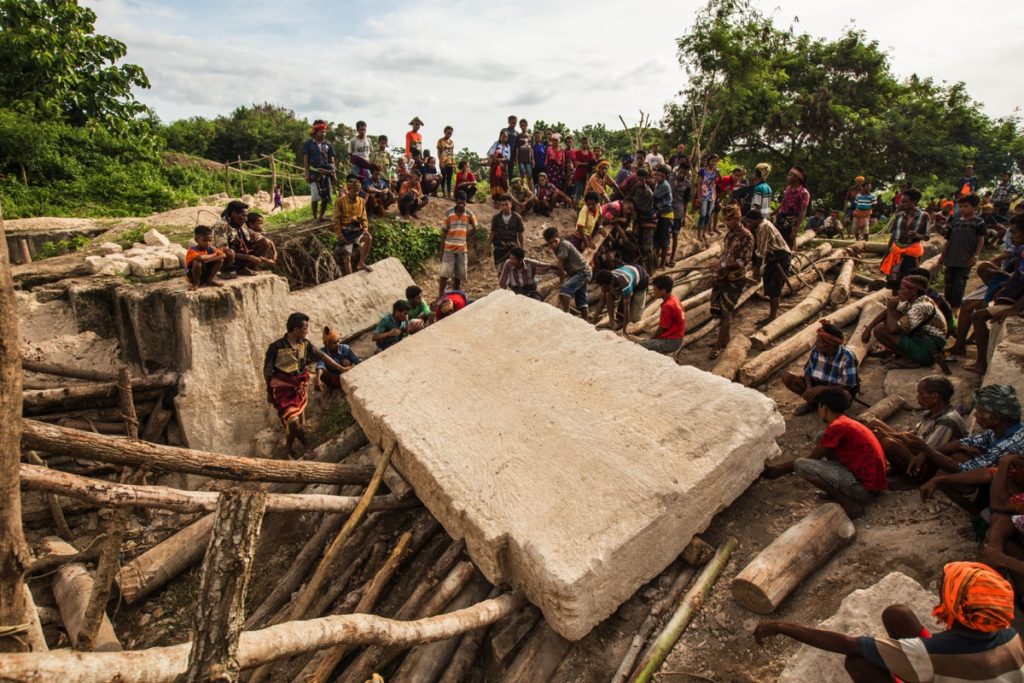
A tombstone being dragged in Kodi
Wealth is necessary but more importantly to ability to bring followers at the event. Feasts are required by the spirits and ancestors to appease them and secure their protection. But organizing feasts is also a way for individual to gain prestige. People will more easily participate (i.e. bring animals) to a feast if they perceive it will have a positive effect on the community. However, people can also be convinced of the necessity to maintain the reputation of the ancestral village for instance.
The logic of exchange
Exchanges are not carried out on a basis of generosity but in the expectation of a repayment in the future. Many Sumbanese have gone bankrupt or in debt for years just to bring the proper offering for a ritual.
Hoskins gives the testimony of an unlucky Kodi man : “I paid one bridewealth, then my first wife got sick. I had her treated by local healers, I paid hospital bills, but she still died and I had to bury her. My children are still small and I want to marry again, but no one is helping me this time“.
Another one : “a relatively young man had brought many more pigs and buffaloes to feasts than he received. He was optimistic about the future : ‘People know that I can play the exchange game. My name is good, my credit even better. When I visit people who received animals from me, they serve me with their best glasses, treating me as someone who will soon be receiving a reciprocal gift’. His early generosity put him in a position to collect later on debts, and his confidence in the benefits of giving helped to buttres his social credit“.
The bitter month (wulla padu)
The period of the onset of the rainy season (November-December) is suitable for ritual activity. Traditionaly is was a period of hardship because all rice was consummed and the new harvest would come only in April. People had to feed on corn.
In Kodi, Hoskins describes a ritual silence of four “bitter month”. It’s called wulla padu in Kodi language, but the spelling is slightly different in the others local languages.
During this period, the fields are prepared and new crops of corn and rice are planted. The prohibitions of the bitter months apply to activities that could be hazardous for the growth of young rice plants. It includes noisemaking, children’s game or large animal sacrifices (hence feasts or funerals).
The prohibitions expire progressively until the apparition on the sea worms nale who mark the start of the mounted battles of the pasola. The pasola is not a shared traditions in every part of Sumba (only in Kodi, Gaura and Lamboya).
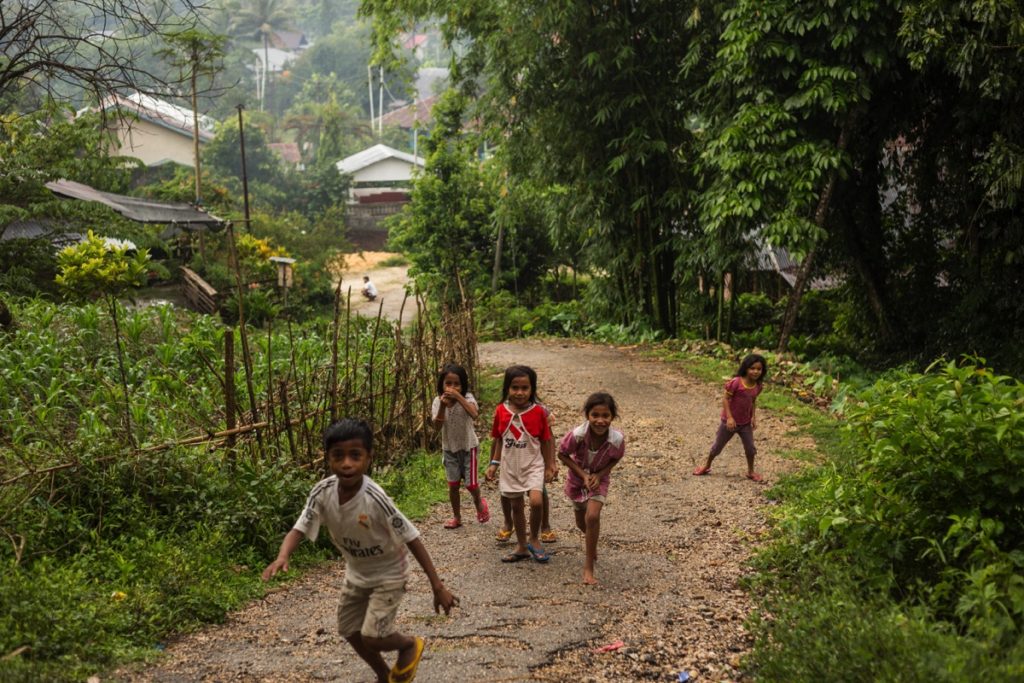
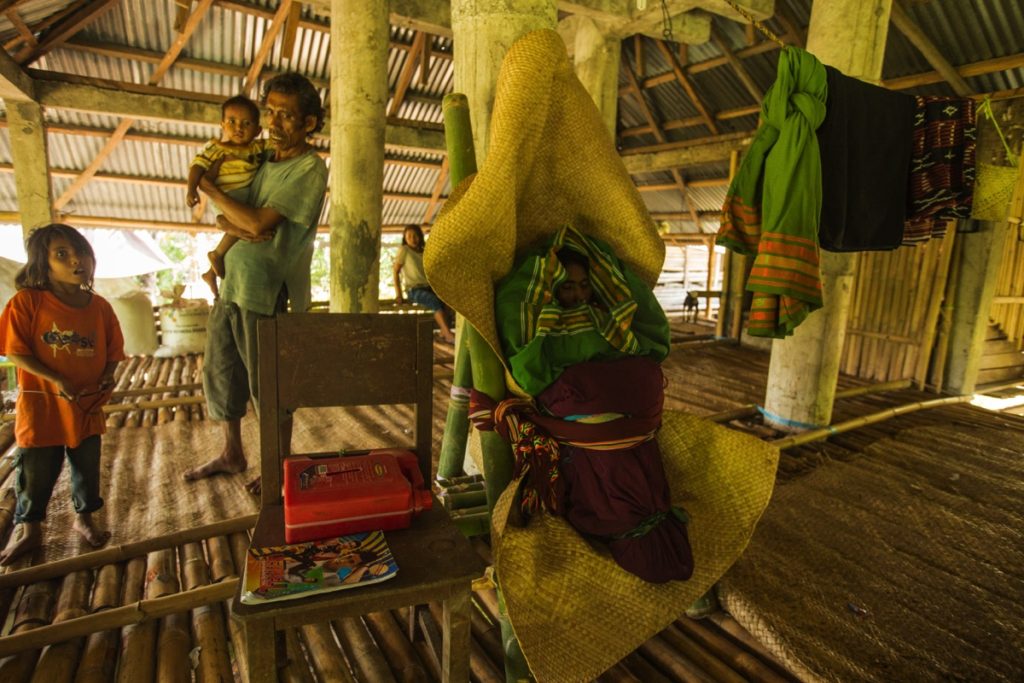
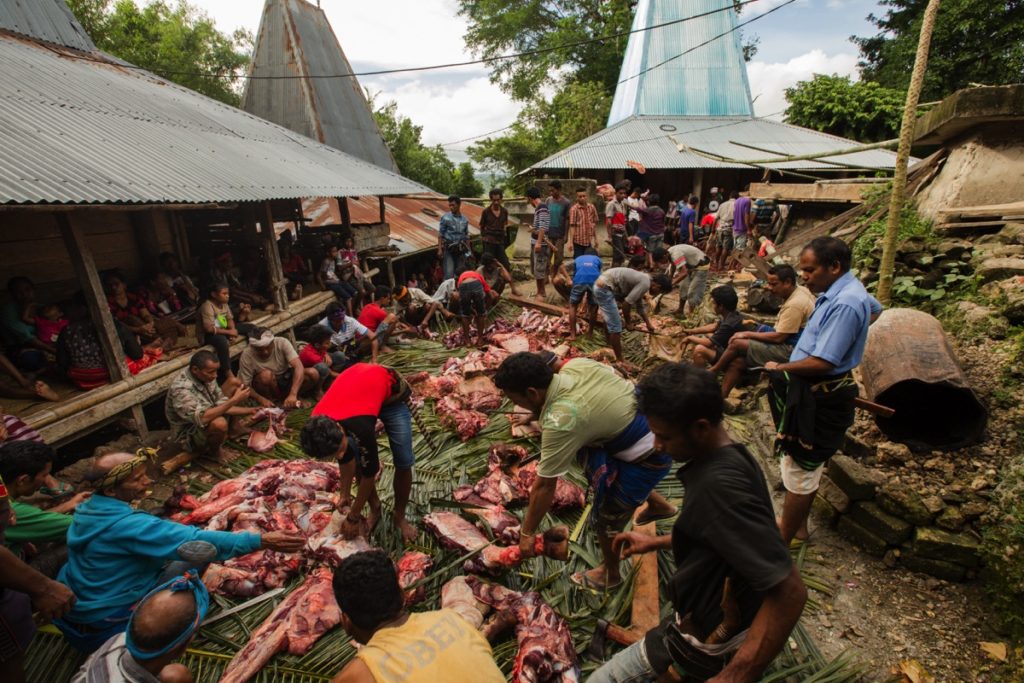
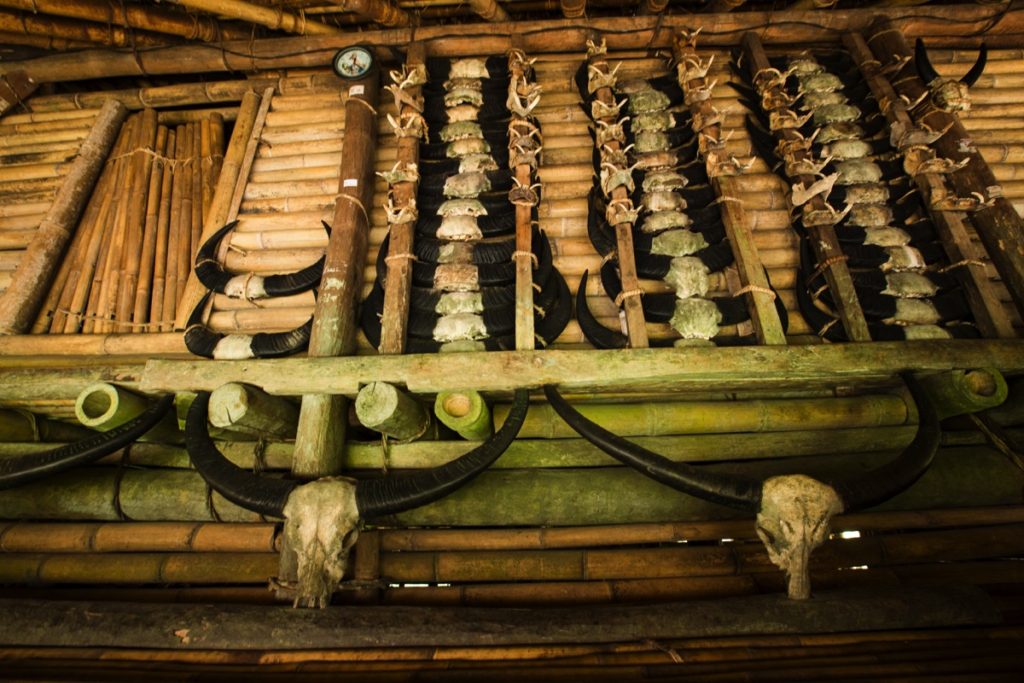

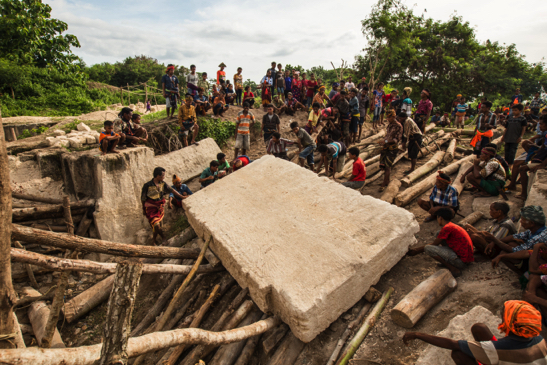
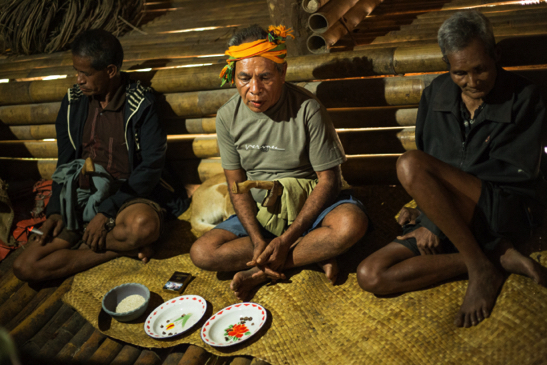
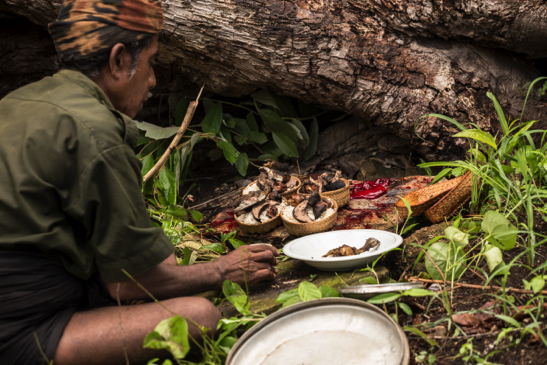
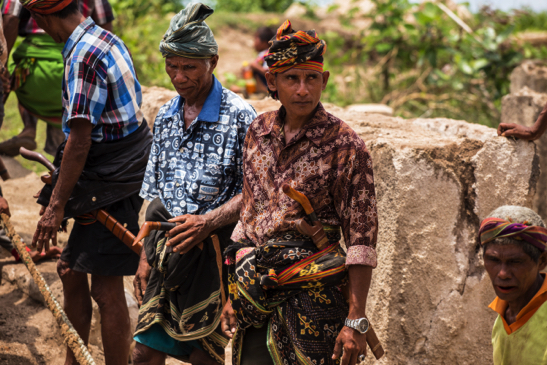
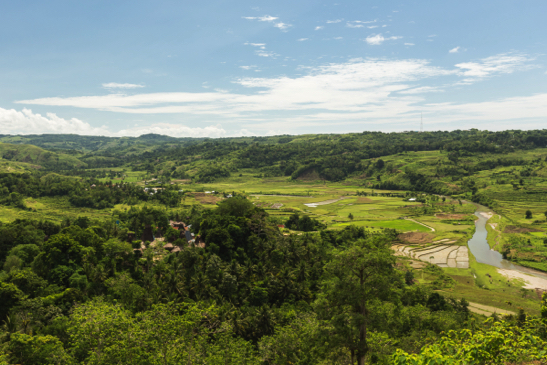
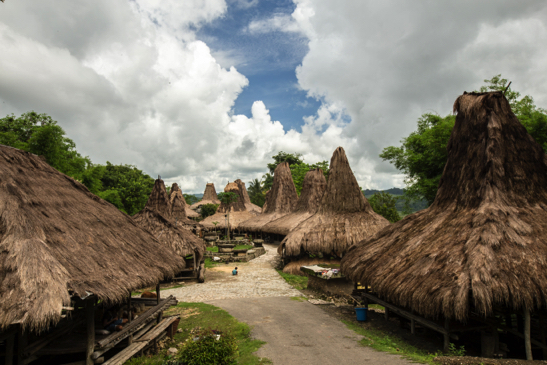
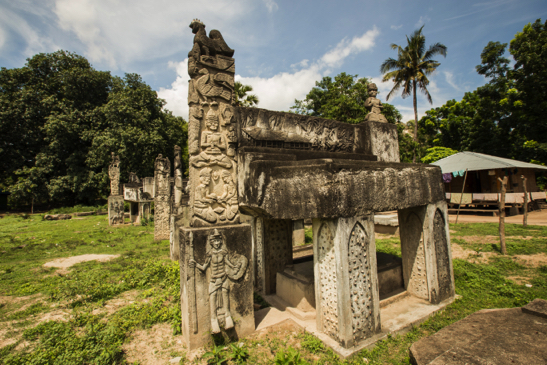
Leave a Reply